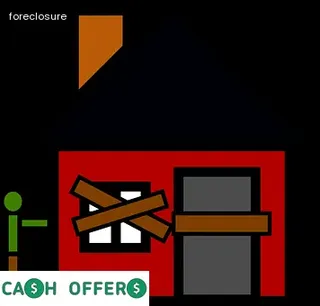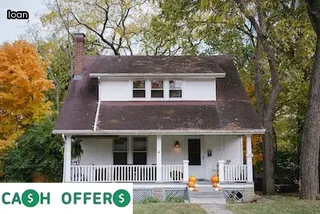Wisconsin law requires that mortgage lenders provide borrowers with information about the loan terms and conditions, including an estimate of the total cost of the loan. Mortgage loans are secured by a deed of trust or a mortgage lien on real property.
When borrowers fail to make timely payments, lenders have the right to foreclose on their properties and take possession of them. Knowing the different types of mortgages available in Wisconsin is key to understanding how they work and when foreclosure proceedings may begin.
Fixed-rate mortgages involve an interest rate that remains fixed over the life of the loan, while adjustable-rate mortgages (ARMs) feature an interest rate that adjusts periodically based on market rates. Interest-only loans allow borrowers to make payments only on the loan’s interest for a certain period before beginning to pay down principal, while balloon mortgages require a large payment at the end of the loan term.
In all cases, it is important for borrowers to understand their rights and responsibilities under Wisconsin law in order to prevent foreclosure or delay it until they can obtain assistance in resolving their debt issues.

When a homeowner fails to make their mortgage payment, the bank will typically send a delinquency notice and begin foreclosure proceedings. During this time, it is important that the borrower contacts their lender as soon as possible to discuss options to avoid foreclosure.
If the borrower cannot pay the full amount due, they may be able to negotiate with their lender for a repayment plan or loan modification. The lender could also agree to a forbearance plan or approve a short sale if necessary.
Unfortunately, if none of these options are available, the property will go into foreclosure and the homeowner may have difficulty obtaining credit in the future.
When a homeowner in Wisconsin is unable to make mortgage payments, they may be facing foreclosure. Fortunately, there are strategies that can be used to prevent a house from going into foreclosure.
Homeowners should contact their lender and discuss the options they have available. A loan modification or repayment plan may be a good option for homeowners who are able to pay back the missed payments over time.
Other potential solutions include refinancing the loan, selling the home, and filing for bankruptcy protection. Homeowners should also try to find assistance through counseling services offered by nonprofit organizations or government programs.
These organizations can provide resources and guidance to help homeowners through the difficult process of foreclosure. Additionally, homeowners should take action quickly if they fear they will miss payments in order to increase their chances of successfully stopping a foreclosure in Wisconsin.

Navigating Wisconsin foreclosure laws can be a daunting prospect for those facing the possibility of losing their home. In order to understand the process, it is important to first become familiar with the state's foreclosure timeline.
Wisconsin is considered a non-judicial foreclosure state, which means that lenders do not need to go through the court system in order to foreclose on a property. Instead, they must follow certain steps outlined in the law.
The lender must provide written notice of its intent to foreclose and give borrowers at least 120 days from that time to cure any default or negotiate other arrangements with the lender before foreclosure proceedings begin. If no resolution can be reached, then the lender may proceed with filing a complaint and setting a date for the sheriff sale where other bids may be accepted by third parties who are willing to purchase the property.
Following the sheriff sale, if no other party has made an acceptable bid, then ownership of the property transfers back to the lender who then becomes responsible for maintaining and securing it until it can be resold.
When a homeowner in Wisconsin is facing foreclosure, there are options available to help prevent the house from going into foreclosure. One option is to work with lenders on loan modifications that lower payments and make them more affordable.
This could include extending the loan term, changing the interest rate, or increasing the amount of principal paid each month. Another option is for the homeowner to use forbearance or repayment plans.
In this scenario, lenders agree to temporarily suspend payments and allow a certain period of time for delinquent amounts to be made up. Homeowners can also try negotiating with their lenders to avoid foreclosure altogether by offering a short sale where they sell their home at a reduced price and use the proceeds to pay off their loan debt.
Finally, homeowners may be able to obtain funds from government agencies and other organizations that offer assistance in avoiding foreclosure proceedings. With these preforeclosure options in Wisconsin, homeowners have resources available that could potentially save their homes from going into foreclosure.

Reinstating the mortgage before a foreclosure sale can be an effective way to prevent a house from going into foreclosure in Wisconsin. It is important for homeowners to understand that reinstating their mortgage does not mean they have been relieved of their debt, but rather it allows them to bring their account current and avoid the risks associated with foreclosure.
To reinstate their mortgage, borrowers must pay off all past due amounts that are owed on the loan, including missed payments, late fees, and any other costs associated with bringing the loan current. Reinstating the mortgage was a great opportunity for those struggling to make payments as it allowed them to remain in their home while catching up on delinquent payments.
Homeowners should also be aware that once they reinstate their loan, they will still be responsible for making regular payments on time in order to keep up with the terms of the agreement. Additionally, it is important to understand that if a borrower defaults again after reinstating the loan, they may face additional penalties or even foreclosure proceedings.
Navigating Wisconsin foreclosure laws can be difficult, but it is possible to prevent a home from going into foreclosure. Before jumping into the details of how to prevent a house from going into foreclosure, it’s important to understand the timeline of events that occur during a Wisconsin foreclosure process.
Typically, the first step in the foreclosure process is when a lender files a lis pendens with the court; this is essentially a public notice that states the homeowner has defaulted on their mortgage payments and that the lender intends to foreclose. Next, the court will issue an order for sheriff’s sale which will set an auction date for potential buyers.
After the auction takes place, if no one bids on the property or if there are not enough bids to cover what is owed on the mortgage, then ownership of the property transfers back to the lender and they may choose to sell it at a later time. If there are sufficient bids at auction and they exceed what is owed on the mortgage, then proceeds from those sales go towards paying off any outstanding debt and any remaining amount goes to the homeowner.
Throughout this entire process homeowners have opportunities to intervene in order to stop their house from going into foreclosure; however, this must be done before sheriff’s sale.

Under Wisconsin law, homeowners facing foreclosure may have the opportunity to redeem their home within a certain period of time. This redemption period begins on the day after the foreclosure sale and is usually six months for mortgages and three months for judgments.
During this time, if the homeowner pays off all mortgage payments and costs associated with the foreclosure, they can regain their home without penalty. If a homeowner does not pay off all past due payments during this period, they are no longer able to save their home from foreclosure and must vacate it.
Additionally, during the redemption period, interest continues to accumulate on any unpaid mortgage payments or judgments made against the property. As a result, it's important that homeowners take swift action to protect themselves from further financial burden once they receive notice of foreclosure.
When it comes to deciding whether to let a house go into foreclosure in Wisconsin, there are both pros and cons. On the one hand, homeowners may be able to avoid the costs and stress associated with a foreclosure proceeding initiated by a lender.
In addition, if the homeowner has already moved out of the house, they may be able to keep any equity that remains in the property after a sale. On the other hand, letting a home go into foreclosure can have long-term effects on an individual’s credit score and future ability to obtain financing.
It can also take years for an individual to rebuild their credit score after such an event. Furthermore, some lenders may pursue deficiency judgments against borrowers who allow their houses to go into foreclosure; this means that even after a foreclosure sale, borrowers might still owe money on their mortgage loan.
Ultimately, when navigating Wisconsin’s foreclosure laws it’s important for homeowners to weigh all potential consequences before deciding whether or not to let their house go into foreclosure.

Wisconsin homeowners have certain rights and responsibilities when it comes to navigating the state's foreclosure laws. Understanding these rights and responsibilities can be the difference between saving a home from foreclosure or losing it forever.
Homeowners should familiarize themselves with the process of foreclosure and how they can protect their home by acting quickly when facing financial difficulty. It is important to understand that if a homeowner misses a payment, they may have only a few weeks before their lender starts the foreclosure process.
Homeowners should also be aware that there are specific steps that must be taken during the foreclosure process, such as filing an answer in court or attending creditor meetings. Furthermore, Wisconsin has numerous resources available for struggling homeowners, including government assistance programs and free legal advice from local foreclosure counselors.
Taking advantage of these resources is key to stopping a house from going into foreclosure and protecting one's rights as a homeowner in Wisconsin.
When dealing with foreclosure proceedings in Wisconsin, there is a critical step called sending a breach letter. A breach letter is a formal document that serves as an official notice to the lender that the borrower has defaulted on their payments.
It provides the lender with information about the loan, including when and how much was paid, any changes to the original agreement, and other relevant details. Receiving this type of notification from the borrower gives the lender an opportunity to take action and possibly avoid foreclosure.
If a breach letter is sent before foreclosure proceedings begin, it can be used as evidence that an attempt was made to resolve the issue before initiating legal action. The lender may also be able to work out an alternative repayment plan or modify existing terms of the loan if they are provided with this kind of written communication.
In any case, sending a breach letter is essential for homeowners looking to protect their home from foreclosure in Wisconsin.

Navigating Wisconsin foreclosure laws can be a challenging process, but it is important to understand the post-foreclosure consequences that could arise from a house going into foreclosure. If the amount of money owed on the foreclosed property exceeds its value, the lender may pursue a deficiency judgment.
This would require the homeowner to pay the remaining balance owed on the loan even after he or she has lost their home. Additionally, depending on state law, homeowners may be responsible for any fees and costs associated with a foreclosure.
Furthermore, foreclosure can lead to an eviction and damage to credit which could make it difficult for an individual to purchase another home in the future.
When a house has been sold at auction due to foreclosure, the former owner must vacate the property as soon as possible. Generally, a judge will set a timeline for when the former homeowner must vacate the premises.
If they fail to do so within that time frame, they can face stiff penalties such as fines or even jail time. It is important to be aware of these timelines and take action quickly in order to avoid any legal consequences.
After the foreclosure sale, there may also be an eviction process initiated by the new owner of the house where they will seek court order that requires you to leave the premises. It is important to understand all of your rights during this process and make sure that you act accordingly in order to make sure that you are not violating any laws or putting yourself at risk for any penalties.

Wisconsin homeowners facing foreclosure have a variety of resources available to help them stop their house from going into foreclosure. The Wisconsin Department of Financial Institutions offers a Foreclosure Prevention program, which provides free counseling and assistance with loan modifications.
Additionally, the department provides an online guide on navigating the foreclosure process, including information about state laws and rights for borrowers. Homeowners can also seek assistance from legal aid organizations, such as Legal Action of Wisconsin, which provide low-cost or free legal services and advice on how to contest foreclosures in court.
Other helpful resources include housing counseling agencies, such as NeighborWorks Green Bay, which offer educational programs and financial management workshops to help homeowners establish budgeting plans that will prevent future loss of property. Finally, many banks and lenders have their own homeowner assistance programs that allow borrowers to restructure mortgages or modify payment terms in order to avoid foreclosure.
Navigating Wisconsin's foreclosure laws can be a complex process for homeowners struggling with their mortgages. It is important to review state laws regarding foreclosures and understand the various processes involved in order to prevent a house from going into foreclosure.
In Wisconsin, the foreclosure process is set forth by both state law and federal law. The first step is to determine if the homeowner has a right of redemption, which allows a homeowner to reclaim the property after it has been sold at a foreclosure sale.
The homeowner must then file a complaint in court against the lender, which starts the formal foreclosure process. The lender then files an answer to the complaint detailing why they believe they are entitled to foreclose on the property.
After this, a court hearing will be held where both parties present evidence as to why or why not the lender should be allowed to proceed with foreclosure proceedings. If the court grants permission for foreclosure, an auction will take place where third parties can bid on purchasing the property from its current owner.
Once this auction occurs, there is no further chance for redemption unless otherwise specified by law or agreement with lenders. Understanding these steps can help homeowners navigate Wisconsin's foreclosure laws and work toward stopping their house from going into foreclosure.

From mortgage assistance programs to grants and loans, Wisconsin homeowners facing foreclosure can find financial assistance from a variety of sources. The state's Hardest Hit Fund program provides struggling homeowners with up to $50,000 in principal reduction assistance for principal reduction to help them stay in their homes.
Other options include the Homeowner Assistance Program, which offers mortgage payment relief up to a maximum of $30,000; the Emergency Homeowner Loan Program (EHLP), which provides interest-free loans of up to $50,000; or the Foreclosure Prevention Loan Program (FPLP), providing funds for qualified borrowers who are at risk of losing their home due to foreclosure. Additionally, Wisconsin residents may be eligible for federal grant programs such as the Home Affordable Modification Program (HAMP) and the Making Home Affordable Initiative (MHA).
These initiatives provide homeowners with access to reduced loan payments, principal reductions and other forms of financial support. In order to determine eligibility and learn more about these programs, homeowners should contact their local housing agency or HUD-approved counseling agency.
In Wisconsin, the foreclosure process typically takes from 90 to 120 days. The length of time is dependent on various factors and can be shorter or longer depending on the circumstances.
The notice of intent to foreclose must be sent to the homeowner at least 90 days before a foreclosure sale can take place. After this, the homeowner has another 30 days in which they may bring their payments up-to-date and stop foreclosure proceedings.
If the homeowner does not catch up on payments by this time, then a foreclosure sale will take place and the property will become owned by a new owner. During this period, homeowners can still work with lenders to negotiate more favorable repayment plans or loan modifications that could prevent foreclosure.
Additionally, state law provides some additional protection for homeowners against foreclosure; it is important to understand these protections and how they may help you navigate Wisconsin's foreclosure laws.

There are many reasons why people may let their house go into foreclosure in Wisconsin. Financial hardship is one of the most common reasons for homeowners to be unable to keep up with mortgage payments and enter foreclosure.
Job loss, medical debt, or other large expenses can make it difficult for owners to pay off the debt on their home. In addition, predatory lending practices can leave homeowners unable to keep up with their loan payments or renegotiate with their lender.
Even if a homeowner is current on their mortgage payments, unexpected expenses or economic downturns can lead to a situation where it becomes impossible to stay current. However, understanding how to navigate Wisconsin’s foreclosure laws and taking steps quickly when financial issues arise can help stop a house from going into foreclosure.
In Wisconsin, a foreclosure occurs when a homeowner fails to make payments on their mortgage and the bank or lender decides to take legal action to repossess the property. The process starts with the lender sending a Notice of Default and Right to Cure letter.
This gives the homeowner 30 days to pay up or enter into an agreement with the lender. If no payment is made, then the lender can file a Lis Pendens or Foreclosure Complaint in court which begins the foreclosure proceedings.
The court will issue a judgment allowing for either redemption or sale of the house. If redemption is allowed, then it allows for the borrower to pay off any outstanding loans and keep their home.
If sale is allowed, then it means that the house will be auctioned off at public sale where anyone can bid on it. Regardless of which way it goes, it's important for homeowners in Wisconsin facing foreclosure to know their rights and seek out help from legal experts if necessary so they have a better chance of stopping their house from going into foreclosure.
In Wisconsin, a foreclosure will stay on your record for seven years. This is the same amount of time that a Chapter 7 bankruptcy stays on your record.
If you are facing foreclosure it is important to know how long it could remain on your record and the steps you must take to try and stop your house from going into foreclosure. You can contact a lawyer or housing counselor for help in navigating Wisconsin’s foreclosure laws.
A housing counselor can provide advice about stopping foreclosures, negotiating with lenders, and other assistance programs available in Wisconsin. They can also help you understand the legal process of foreclosures and how they affect credit reports.
It is important to remember that while the foreclosure process may be difficult and stressful, it is possible to prevent a home from going into foreclosure if proper steps are taken in a timely manner.